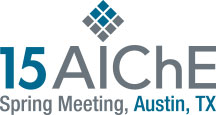

Olefin production is the largest emitter of CO2 and NOx in the organic chemical industry. With worldwide ethylene production at ~4,500 MT/yr, the industry emits 4,500-9,000 MT/yr. of CO2 and roughly 1.4 MT/yr of NOx. Natural gas production from shale deposits has dramatically increased supply in recent years. Numerous olefin grass route and expansion projects are either under contract or in the planning stages to take advantage of the relative low cost liquids from wet shale gas. Projects located in severe EPA non-attainment zones are challenged by the increase cost of NOx control. The total GHC emission profile, reported in CO2 equivalents, is a critical part of the permitting for all production expansions. The oxidative dehydrogenation (ODH) of ethane and propane to olefins offers a production route that can significantly reduce CO2 emission and virtually eliminate NOx emission from world scale plants. While a significant amount of research has been done in ODH over the last 25 years, most reported processes involve highly exothermic catalytic reactors that co-feed oxygen and hydrocarbon over a platinum group metal catalysts. EcoCatalytic and NCSU are collaborating on the development of novel metal oxide ODH catalysts for use in chemical looping reactors. The use of chemical looping redox reactors for ODH could eliminate the need for air separation, or the cost of purchased oxygen. Research at the bench scale has demonstrated one pass yields in excess of 72% using catalyst made from very low cost catalyst materials. Scoping economic evaluations will be present that compare the economic return for grass route steam cracking, catalytic ODH and chemical looping ODH using circulating fluid beds.
